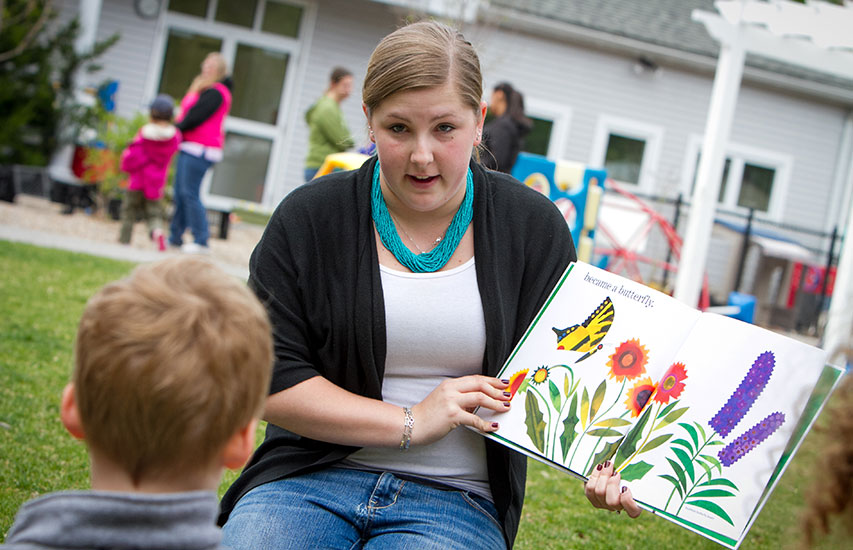
TOPICS:
Curry College is now among a select list of higher education institutions offering a state-approved Early Intervention program. With the recent approval from the Massachusetts Department of Public Health, students studying Early Intervention now have a direct pathway to becoming certified as an early intervention specialist by completing a practicum field experience and applying for the Provisional Certification with Advanced Standings (PCAS).
“Curry College is one of only three higher education institutions in Massachusetts that offers a state-approved undergraduate Early Intervention program,” says Dr. Dotty Alexander, professor, Department of Education. “With our recent state approval, Curry continues to serve as a key launchpad for our graduates who will enter the job market with the highest level of knowledge, training, and qualifications.”
Graduates from the Early Intervention program work in a variety of settings, including home and center-based child care programs, to provide intervention and support to infants, toddlers, and young children who have or may be at risk for a developmental delay. With a continued focus on early childhood education, recent legislation has led to a growth in jobs and funding in the early intervention field. The Early Intervention program expands the special education, community education, and early education and care majors and offers students an opportunity to work in the field of special education outside of public schools in a community-based setting.
Roughly a dozen graduates in the Class of 2020 majoring in Early Education and Care, Community Education and concentrating in Early Intervention, accepted positions to help meet the demand for early educators and intervention specialists in the area.
This month, Lindsey Gaouette ’20 began her new role as an infant/toddler teacher at the Community Action Pioneer Valley Head Start, in Amherst, Mass. “Watching young children flourish as learners is exciting, and I can’t wait to apply the tools and knowledge I’ve gained during my time at Curry in my new role,” she says. “Through volunteering and student-teaching, I’ve had a tremendous opportunity to collaborate with teachers, write and implement curriculum, and, most importantly, develop a rapport with young students and their families. By completing the Early Intervention program, I know I can support infants and toddlers with special needs, and I can’t wait to get started.”
To minor or concentrate in Early Intervention, students focus on specialized coursework in working with infants and toddlers, family systems, and foundational practices in special education, early assessment, and intervention. The program also requires students to complete a 300-hour practicum in which they work in the field within an Early Intervention program. Faculty and industry mentorship opportunities are also integrated as part of the curriculum and training in the program.
“The role of Early Intervention is crucial in providing support to children who are at risk or diagnosed with a developmental delay,” says Professor Michelle LeBlanc, Education Department Chair. “Approval of the Early Intervention Program by the Massachusetts Department of Public Health represents one of the many ways we’re working to continuously improve the opportunities the Education Department brings as we prepare students for this vital work.”